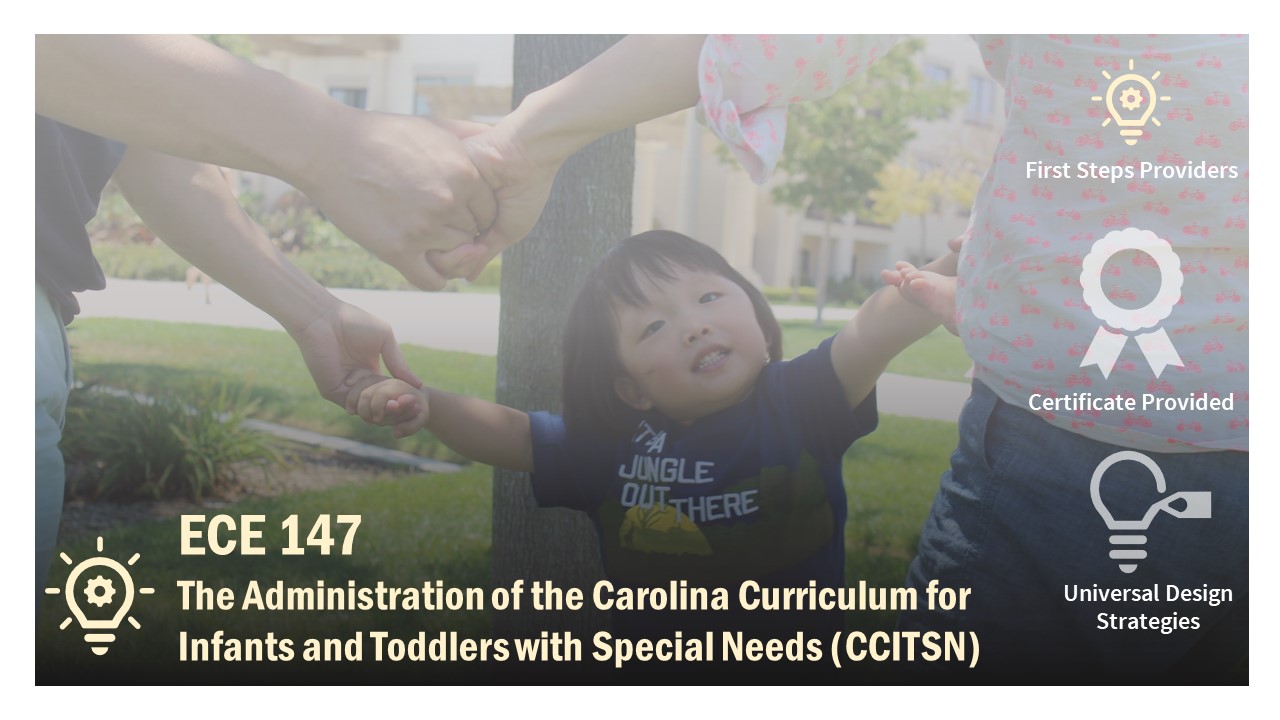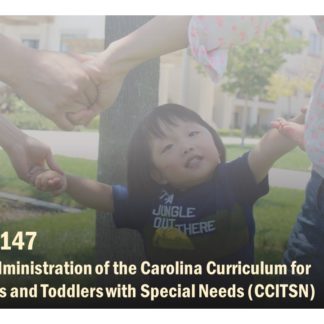Description
The course will take 4 hours to complete, and provides an overview to the features of the CCITSN. Course materials must be purchased prior to enrollment from Brookes at www.brookespublishing.com.
Trainer Qualifications
About Carol Schroeder
Carol Schroeder holds advanced degrees in Montessori Preschool Education and Early Childhood Special Education. She directed programs in early intervention and inclusive preschool education and, more recently, directed early childhood projects at the University of Kentucky, Human Development Institute.
E-mail: carol.schroeder@uky.edu (retired)
About Caroline Gooden
Caroline Gooden is a Project Director at the Early Childhood Department at the Human Development Institute at the University of KY. She has degrees in psychology, Early Childhood Special Education, and Special Education Administration. She has experience as an adjunct faculty, researcher, early interventionist, child evaluator, and early childhood program director. She has been Co-PI for four projects at the University of Kentucky, including the National Early Childhood Transition Center and three Kentucky Early Childhood Data System projects. Email: caroline.gooden@uky.edu Web: www.kedsonline.org
Target Audience
Teachers and providers working in early care, education and intervention.
Course Outline
- Introduction to the CCITSN Online Course
- Section 1: Introduction to CCITSN Assessment (15 minutes)
- Section 2: CCITSN Nuts and Bolts (15 minutes)
- Section 3: CCITSN Tool Belt (30 minutes)
- Section 4: Applying What You Know: Sharpening Your Assessment Skills (1 hour, 15 minutes)
- Section 5: Assessment Skills: Additional Practice (1 hour, 15 minutes)
- Section 6: Planning for the Individualized Family Service Plan (30 minutes)
Training Outcomes
During completion of this course, you will practice:
- Accurately assessing a child’s present developmental status using the CCITSN (Carolina Curriculum for Infants & Toddlers with Special Needs)
- Accurately scoring the CCITSN and reporting scores for curriculum sequences on the Developmental Progress Chart
Workplace Outcomes
After completion of this course, you will be able to:
- Collect relevant developmental information about a child to communicate with the family and others on the Individual Family Service Plan (IFSP) team.
- Use collected information to plan for child progress.
- Plan periodic assessments and monitor ongoing progress.


